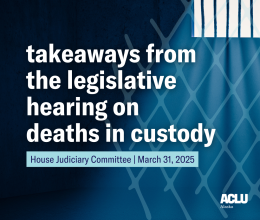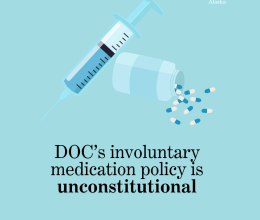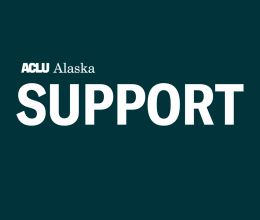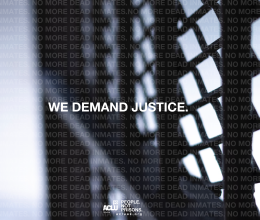
The ACLU of Alaska’s Prison Project works tirelessly to ensure that our state’s jails and prisons comply with U.S. and Alaska constitutional law, and that all Alaskans who have interacted with the criminal legal system have the ability to exercise their full rights. Fifty percent of the prison population in Alaska is comprised of people who are pretrial, meaning their voting rights are still intact, and they can cast a ballot. And unlike many places, in Alaska, once you’re released and are no longer on probation or parole, you can vote again.
The election cycle is already upon us, and as Americans across the country gear up to participate in primary and general elections, we are sharing resources to clarify voting rights and voting status for people who are currently incarcerated, or for people who have been formerly incarcerated.
Voting while incarcerated
If you are currently incarcerated or helping an incarcerated loved one vote, here’s what you need to know.
Incarcerated people can vote, unless they have been convicted of a felony. If a person has a felony conviction, they may not vote in state, federal or municipal elections from the date of the conviction until the date of the unconditional discharge of the person. The list of felonies that disqualify an individual from voting can be found here. Unconditional discharge means you are no longer under the supervision of the Department of Corrections, which includes probation/parole/any court supervision.
How to request an absentee ballot. If a person is incarcerated while awaiting trial or has been convicted of a misdemeanor, they can request an application to receive an absentee ballot by mail from the Division of Elections through the correctional facility where they are detained. If the facility fails to provide it, someone can print this document and mail it to the incarcerated person to complete and mail to the Division of Elections by October 3, 2024.
- A person registering to vote should use their last place of residency before incarceration as their “Alaska residence address” on the application form, not the correctional facility where they currently reside.
-
If a person was unhoused before incarceration, they can list any address where they resided and intend to return. A hotel, shelter bed, facility, or even a park bench would be sufficient for the listed address.
-
-
The person should also put their last place of residency prior to incarceration as the "Permanent address where they receive mail." But the “Ballot mailing address” should be the address of the jail or prison where they currently reside.
Here’s an example of how to fill out an absentee ballot from a prison or jail facility in Alaska.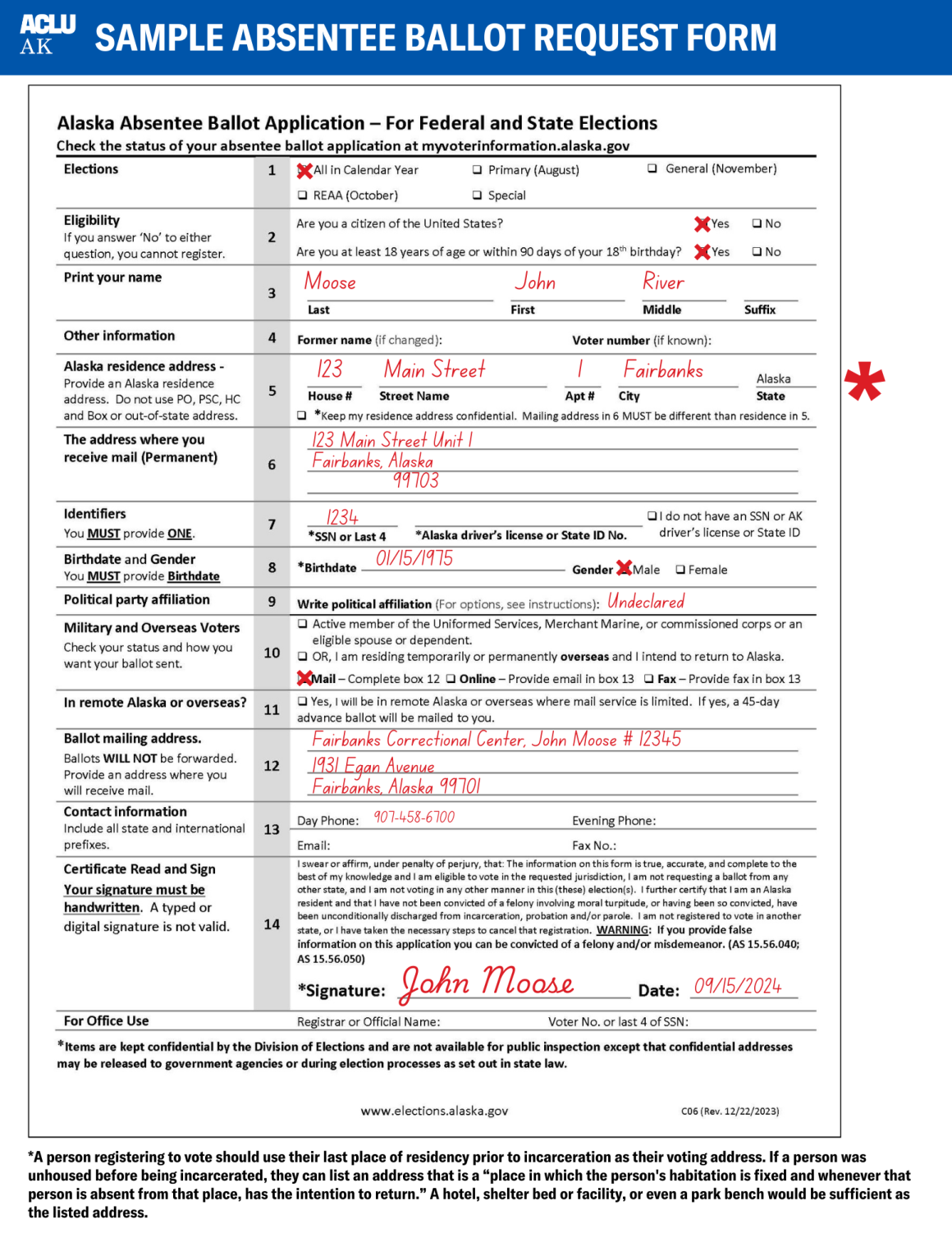
Voting after incarceration
If you’ve been incarcerated and have not voted in more than eight years, you need to check your voting status and register to vote again. Under current law, a person can miss two elections (four years) before getting a warning letter from the Division of Elections that they are in threat of being purged from voter rolls. A person then has two years in which they will be mailed a letter each year warning their registration will be labeled inactive. Once that second letter is sent, they have two years before they are removed from the voter rolls. Check your voter registration status online here.
DOC should send you a letter saying your voting rights were restored. An incarcerated person, even someone with a felony, is eligible to register to vote if they have completed their sentence and have been unconditionally discharged from probation and parole supervision. The Department of Corrections (DOC) is supposed to send you a Notification of Restoration of Voting Rights Letter. If you receive one, make sure you keep it. But it’s okay if you don’t --- just make sure you have dismissal or discharge papers that prove you are no longer on probation or parole.
How to register to vote after incarceration.
There are two options to register to vote after incarceration.
- Register to vote in-person at Division of Elections Offices, DMV Offices, Vocational Rehabilitation Offices, Participating Tribal Government Offices, Legislative Information Offices, United States Armed Forces Assistance Offices, Public Assistance Agencies, City or Borough Clerk's Offices, Participating Public Libraries, Voter Registrars. When you register to vote, you should bring your dismissal or discharge papers to prove you are no longer on probation or parole.
- Register to vote via mail or online.
-
By mail. Print a paper form to complete and sign. Send the completed form by mail, fax, or email attachment to a Regional Elections Office. When registering to vote, send a copy of either your current driver's license, state ID, passport, or birth certificate with your paper form. Ensure documents are attached directly to email, including dismissal/discharge papers.
Register online. Register through Division of Elections’ online site. Be prepared to upload documents including dismissal/discharge papers.
-
Once voter registration application has been processed, Division of Elections will send the voter an identification card. The card takes approximately 4-6 weeks to arrive. The voter should then proceed to vote as normal.
Having issues with voting while incarcerated or navigating the elections process after incarceration? Write us a letter or send an email to Natalie Cauley at [email protected]. Please remember that lead time is needed given the deadlines for registering and mailing ballots.
